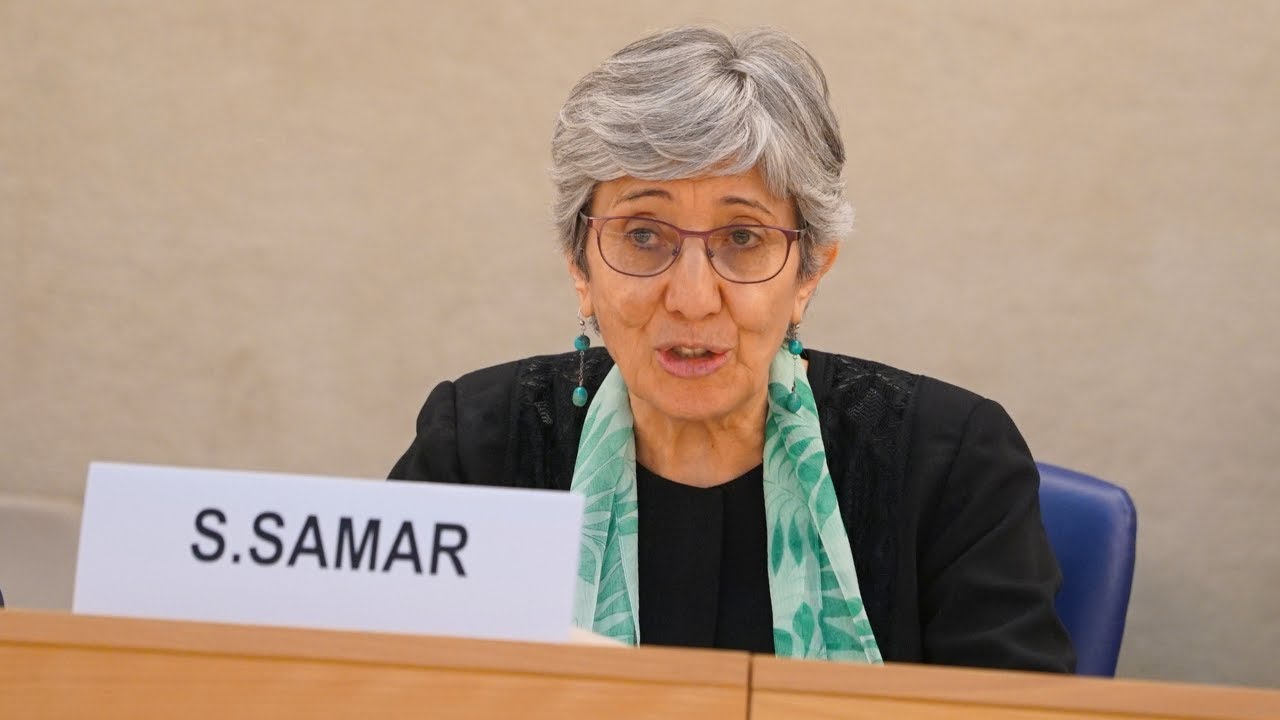Sima Samar, a 2012 Right Livelihood Laureate, has spent over 45 years promoting gender equality for Afghan women and girls. Whether as a doctor, United Nations Special Rapporteur, Minister of Women’s Affairs or Afghanistan Independent Human Rights Commission chairperson, her commitment to justice has never wavered—even as she now lives 10,000 kilometres from home. Exiled in the United States, Samar continues to resist the Taliban’s oppressive policies while sharing her hopes and fears for the country’s future.
From the other side of the world, near Boston, Massachusetts, Samar has made it her mission to stay connected to life in Afghanistan and counter the de facto regime’s authoritarian and anti-women policies.
Since the Taliban takeover in August 2021, Afghan women and girls have been victims of what Samar and other experts call “gender apartheid”. Among other draconian policies, women and girls have been banned from attending school past grade six, using smartphones and going outside without a full-body covering.
In a conversation with Right Livelihood, Samar shared her current projects countering these policies—everything from teaching classes on transitional justice in Afghanistan to preparing a report on the Taliban’s violations of women’s rights and leading workshops on reproductive access in conflict zones.
Yet, no matter how high-level her work may appear, it’s clear that Samar is driven by the realities of women and girls living in Afghanistan: “I’m focusing on girls’ education because it’s their basic human rights and life,” she explained.
Reflecting on the Afghanistan she once helped shape as Minister of Women’s Affairs, Samar lamented the Taliban’s systematic efforts to erase women from public life.
“They abolished everything,” she said. “They took all the rights of women. There is no education beyond sixth grade, no freedom of movement, no freedom of choice on what to wear, no work outside of the house. They can’t even walk in the park.”
Her remark about walking in the park is not hyperbole. She recounted the story of her friend, a teacher who now spends her days at home after the Taliban banned women from working in schools.
“She was so depressed at home, so she asked her husband, ‘Let’s go away to a rural space’,” Samar said. But, once the couple arrived at their destination, a local Taliban member told them women were not allowed to walk there and that she should stay in the car.
With no other choice, Samar’s friend remained seated. “At least I could look at the trees and the greenery and into the mountains,” she told Samar.
As the Taliban systematically destroy Afghan women and girls’ humanity, they continue to insist that these measures are simply the will of the people.
“If the people support them, why are they not willing to include people in governance or to hold an election?” said Samar.
On top of the Taliban’s disregard for democracy, Samar is angered by the lack of organised resistance, especially among men.
“I am simply saying that if the drivers don’t drive for a day, the shopkeepers don’t open their shops for a day, and the civil servant doesn’t go to the office for a day, then they cannot collectively punish everybody,” said Samar.
“I am very disappointed that the male members of the family, of the community do not stand with women.”
Samar is also not hopeful about the international community’s ability to promote change. From countries abandoning their feminist foreign policy to politicians insisting “Afghanistan’s complexity” makes it impossible to intervene, restoring gender equality feels nearly impossible.
“We should not forget that we live in a very patriarchal society,” Samar said. “Women’s rights is not on anyone’s agenda. There’s a lot of backlash and pushback on women’s and human rights around the world.”
At times, it appears the only quick solution to ending the Taliban’s, and the world’s, war on women is infighting within the authoritarian regimes themselves. But, Samar is not interested in leaving the future of women’s rights in their hands.
“Women are still resisting,” she said. “Women should be united and should stand with each other to protect their rights. They cannot fall on the dirty politics of different parties or different ambitious men.”
One small sliver of hope appeared last week when the International Criminal Court (ICC) applied for arrest warrants for senior Taliban officials. For Samar, it is vital for the international community to support the ICC politically and financially to ensure Afghanistan stays on the agenda.
“It is healing and hopeful for the women in my country that there is a system of accountability and justice at the international level,” Samar said. “We are not completely forgotten.”

